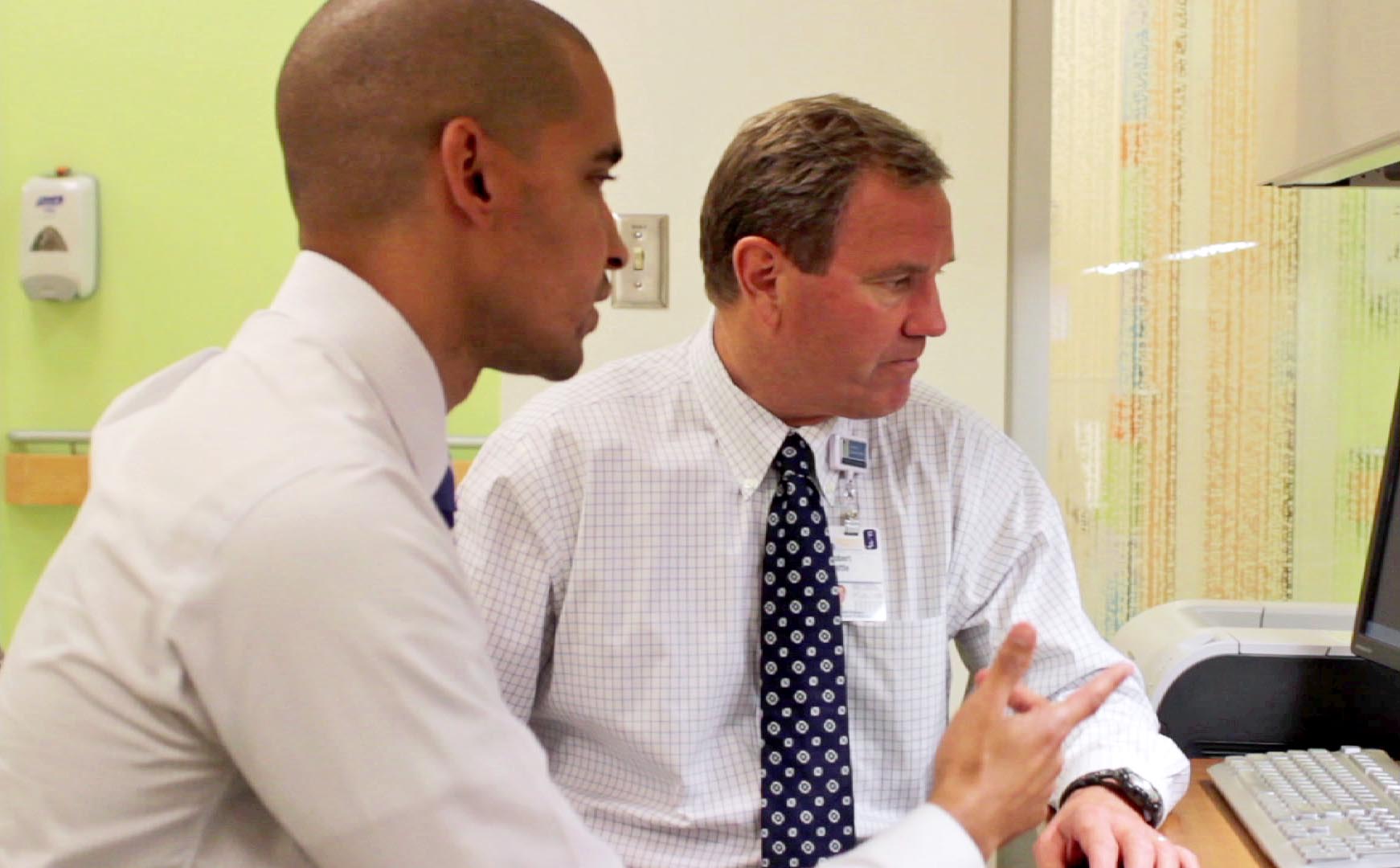
Often caused by a single gene mutation, inherited heart conditions often present as structural problems (such as cardiomyopathies or aortic aneurysms) or electrical abnormalities (arrhythmias). Although the gene mutation itself cannot be modified, early diagnosis is critical for improved patient outcomes. When inherited heart conditions are detected prior to symptoms, the complications can often be successfully managed with medication, careful surveillance, activity restrictions and/or preventive surgery.
The UVA Cardiovascular Genetics Clinic is designed to help patients with or at risk for these inherited conditions. A comprehensive evaluation of a patient’s medical and family history, combined with advanced genetic testing enables a cardiologist and genetic counselor to determine the best course of treatment to lower or manage the risk of serious complications.
“Unfortunately, a lot of the inherited heart conditions have little-to-no symptoms, so the first recognized sign of disease may be sudden cardiac arrest,” says the clinic’s lead genetic counselor, Matthew Thomas, ScM. “Our goal is to identify those at risk sooner, so that we not only manage their condition but also inform family members of their potential risk.”
Indications for Genetic Testing
Part of UVA Heart and Vascular Center and UVA Children’s Hospital, the Cardiovascular Genetics Clinic offers services to patients with any known or suspected hereditary heart condition and their families. Some key indicators that signal the need for cardiovascular genetic testing include:
- A personal or family history of an inherited heart condition (such as long QT syndrome, hypertrophic cardiomyopathy or Marfan syndrome)
- A personal or family history of thoracic aortic aneurysm or nonischemic cardiomyopathy at a young age (younger than 50)
- A survivor of an unexplained sudden cardiac arrest
- A family history of unexplained sudden death at a young age
Process for Genetic Testing
When you refer a patient to the UVA Cardiovascular Genetics Clinic, a genetic counselor will:
- Review the patient’s medical history and relevant records
- Construct a multigenerational pedigree to identify other affected and/or at-risk family members
- Discuss how genetic testing may be helpful for the patient and/or his or her family
- Handle the insurance authorization for genetic testing and obtain informed consent
- Facilitate the genetic testing at an appropriate laboratory, which usually requires a small blood sample
- Interpret the results of the genetic test and communicate them to the patient and his or her providers
- Help coordinate genetic testing in at-risk family members when necessary
When the results of the genetic test are available, a genetic counselor will review them in detail with the patient. “We work hard to ensure patients understand their genetic test results and feel comfortable with what they mean for their diagnosis and medical care moving forward,” says Thomas. Should the results of the genetic testing prove positive for a genetic condition, this comprehensive care extends to members of the patient’s family, who usually have a 50 percent chance of having the same condition.
After the patient is informed, all genetic test results are sent to the referring physician, along with the genetic counselor’s interpretation. The report includes guideline-based recommendations for how this information can be used to best manage the patient and his or her family members. “Communicating genetic test results to referring providers and primary care physicians is critical role of our clinic,” says Thomas. “We not only emphasize how genetic test results change a patient’s care, but also how they impact the at-risk family members who may also be cared for in the same practice.”
Learn more about the UVA Cardiovascular Genetics Clinic.
Watch a video segment featuring Matt Thomas, discussing inherited cardiovascular conditions.